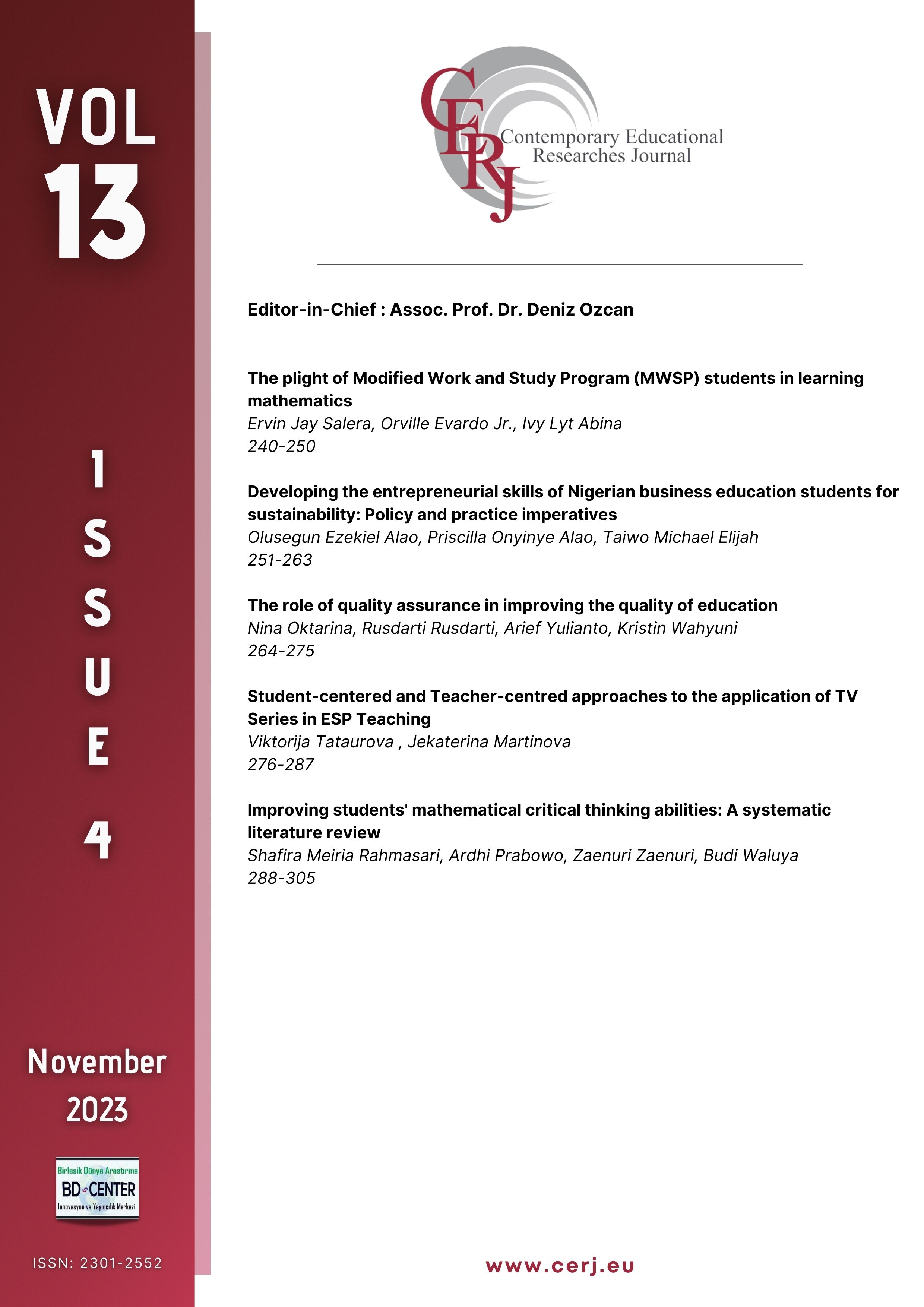Student-centered and Teacher-centred approaches to the application of TV Series in ESP Teaching
Main Article Content
Abstract
The use of movies and TV series in the foreign language classroom has proved to be successful for multiple reasons, such as the development of various English language skills, the increased motivation and engagement of the students, the awareness of cultural diversity, as well as the decreased anxiety and stress levels. However, previous research in the field has primarily concentrated on the use of teacher-centered methods and approaches. The present research employs two documentary TV series on teaching ESP to first-year tertiary-level students to investigate the students’ feelings associated with the use of multimedia via two different perspectives: student-centered and teacher-centered. While the former method does not restrict the students with any requirements and allows for their creativity, the latter is fully directed by the teacher-instructor. On the completion of two sets of activities, the students are asked to reflect on their experiences with both teaching approaches by completing the surveys on Google Forms. The results of the research have suggested that the groups of students were satisfied with both sets of activities giving a slight preference to the student-centred one, which despite being time-consuming, was described as ‘interesting, motivating, and engaging’.
Keywords: Movie-based learning; student-centered teaching; teacher-centered teaching
Downloads
Article Details

This work is licensed under a Creative Commons Attribution-NonCommercial-NoDerivatives 4.0 International License.
Authors who publish with this journal agree to the following terms:
- Authors retain copyright and grant the journal right of first publication with the work simultaneously licensed under a Creative Commons Attribution License that allows others to share the work with an acknowledgement of the work's authorship and initial publication in this journal.
- Authors are able to enter into separate, additional contractual arrangements for the non-exclusive distribution of the journal's published version of the work (e.g., post it to an institutional repository or publish it in a book), with an acknowledgement of its initial publication in this journal.
- Authors are permitted and encouraged to post their work online (e.g., in institutional repositories or on their website) prior to and during the submission process, as it can lead to productive exchanges, as well as earlier and greater citation of published work (See The Effect of Open Access).
